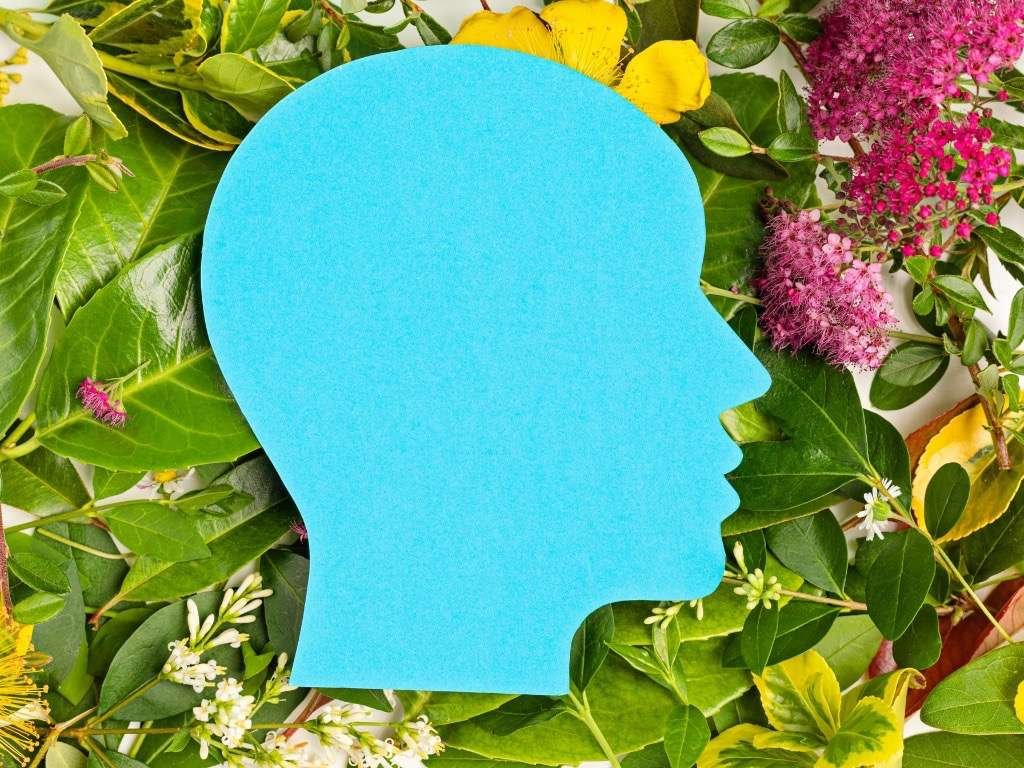Life can feel overwhelming at times, and it’s easy to forget to pause and check in with yourself. Your mental health shapes how you think, feel, and interact with the world around you. Taking just a few moments each day to care for your mind doesn’t only reduce stress—it opens the door to more joy, energy, and genuine connections. In this guide, you’ll discover simple, practical habits that can help you feel lighter, calmer, and truly happier.
It’s important to nurture your mental health so you can face life’s challenges with confidence. Even the smallest daily changes can have a big impact on how you feel, think, and connect with others.

By adding simple habits to your daily life, you can improve your mental wellbeing. This article will show you 11 easy practices for a happier, healthier you.
Key Takeaways
- Simple practices can significantly improve mental wellbeing.
- Incorporating daily habits can enhance overall quality of life.
- Effective mental health tips can lead to a happier life.
- Awareness and self-care are crucial for mental health awareness.
- Small changes can make a big difference in mental wellbeing.
The Science of Happiness and Mental Wellbeing
Exploring happiness and mental wellbeing shows their big impact on your life. They are key to your overall happiness and how well you do in life. They affect your relationships and how productive you are.
How Mental Health Affects Your Daily Life
Your mental health is crucial for daily life. It shapes how you think, feel, and act. Good mental health helps you handle stress, make choices, and keep healthy relationships.
Poor mental health makes daily tasks hard, strains relationships, and lowers your wellbeing. When you’re mentally well, you’re more motivated and productive. Mental health issues can make it hard to focus, make good choices, and enjoy activities.
The Mind-Body Connection
The mind and body are closely linked in mental health. Studies show that mental and physical health are connected. For example, stress can cause physical problems like headaches or stomach issues.
But, regular exercise can boost your mood and lessen anxiety and depression symptoms. Knowing this connection helps you care for your whole self. This approach can make you happier and healthier.

By understanding this link, you can take a holistic health approach. This includes activities that help both your mind and body. Doing so can greatly improve your mental health and wellbeing, leading to a better life.
| Mental Health Aspect | Impact on Daily Life | Improvement Strategies |
|---|---|---|
| Cognitive Function | Affects decision-making and problem-solving abilities | Practice mindfulness, engage in mentally stimulating activities |
| Emotional Wellbeing | Influences mood and emotional resilience | Develop healthy coping mechanisms, cultivate gratitude |
| Physical Health | Linked to physical health outcomes, such as cardiovascular health | Engage in regular physical activity, maintain a balanced diet |
Improving your mental health is easier than you think. Simple mindfulness practices can make a big difference. Mindfulness means being fully present and aware of your thoughts and feelings without judgment. It can reduce stress, help you manage emotions better, and improve your overall wellbeing.
Mindfulness Practices for Better Mental Health
Mindfulness practices help you stay in the moment. This can positively affect your mental health.
Daily Meditation Sessions
Daily meditation is a great way to calm your mind and boost your mental health. Find a quiet spot where you can sit comfortably. Close your eyes and focus on your breath, letting go of thoughts.
Start with short sessions of 5-10 minutes. As you get more comfortable, you can increase the time. Guided meditation apps or videos can help you begin.
Meditation can reduce anxiety, improve focus, and bring calm. Try to meditate at the same time each day, like in the morning or before bed.
Mindful Breathing Techniques
Mindful breathing is easy to do anywhere, anytime. Sit comfortably or lie down with your back straight. Close your eyes and focus on your breath, feeling the air move in and out of your nostrils.
If your mind wanders, gently bring your focus back to your breath. Don’t judge yourself.
| Step | Description |
|---|---|
| 1 | Find a comfortable position |
| 2 | Close your eyes and focus on your breath |
| 3 | Notice the sensation of the air entering and leaving your nostrils |
| 4 | Gently bring your focus back to your breath when your mind wanders |

By adding these mindfulness practices to your daily routine, you can enjoy the mental health benefits of mindfulness. These include less stress and better emotional wellbeing. Regular practice can lead to a more balanced and fulfilling life.
Physical Activities That Boost Your Mood
Physical activity is a great way to boost your mood and mental health. Doing regular physical activities can greatly improve your mental wellbeing and productivity. Adding simple exercises and outdoor activities to your daily routine can greatly help your mental health and self care.
Regular Exercise Routines
Regular exercise is key for good mental health. It not only keeps your body healthy but also lifts your mood. Exercise releases endorphins, which are natural mood boosters.
Some effective exercise routines include:
- Brisk Walking: A simple and accessible form of exercise that can be done almost anywhere.
- Jogging or Running: Excellent for cardiovascular health and releasing endorphins.
- Yoga: Combines physical movement with mindfulness and breathing techniques.
- Swimming: A low-impact exercise that is easy on the joints and can be very relaxing.
Nature Walks and Outdoor Activities
Spending time in nature can calm your mind and body. Nature walks and outdoor activities are great for reducing stress and improving your mood. Being in nature can make you feel more connected and grounded.
Some ideas for nature walks and outdoor activities include:
- Hiking: Explore local trails and enjoy the scenery while getting a good workout.
- Gardening: Nurturing plants can be therapeutic and rewarding.
- Picnics: Spend time outdoors with family and friends, enjoying good food and company.
- Cycling: A fun way to explore your surroundings while improving cardiovascular health.
By adding these physical activities to your daily routine, you can improve your mental health and productivity. The most important thing is to find activities you enjoy and that fit your lifestyle.
Nutrition Strategies for Mental Health
Eating well is key for good mental health. What you eat affects your mood and how you handle stress. It’s important to choose foods that support your mental wellbeing.
Some foods can make you feel better, while others might not. Knowing how diet affects mental health helps you make better choices.
Brain-Boosting Foods and Hydration
Eating foods that are good for your brain can really help. Foods like salmon and walnuts are full of omega-3s, which are great for your brain. Leafy greens, like spinach and kale, have folate, which helps your mood.
| Food | Nutrient | Benefit |
|---|---|---|
| Salmon | Omega-3 fatty acids | Supports brain function |
| Spinach | Folate | Regulates mood |
| Walnuts | Omega-3 fatty acids | Enhances cognitive function |
Drinking enough water is also crucial. Even a little dehydration can mess with your mood and thinking. Make sure to drink water all day to keep your mind sharp.
“You don’t have to be great to start, but you have to start to be great.” – Zig Ziglar. Starting your day with water and eating brain-boosting foods can help set a positive mood.
Mindful Eating Habits
Mindful eating means listening to your body and eating slowly. It can help you feel less stressed and have a better relationship with food.
To eat mindfully, try to eat without distractions. Turn off the TV and put away your phone. Chew well and take breaks to check if you’re still hungry or full.
By adding these nutrition tips to your daily life, you can improve your mental health. Remember, a healthy diet is just one part of staying well.
Building Social Connections for Emotional Support
Having a strong support network is key for emotional strength. Building social connections helps keep your mental health in check. It acts as a safety net when things get tough. By creating meaningful relationships and setting healthy boundaries, you boost your mental wellbeing.
Cultivating Meaningful Relationships
Building strong relationships takes time and effort. It’s about finding people who make your life better. This can be through friends, family, or groups that share your interests. Meaningful relationships are based on respect, trust, and open communication.
To build these connections, try these tips:
- Make time for regular chats with loved ones.
- Do things together that you both enjoy, like hobbies or volunteering.
- Listen well and show you care about what others say.
Setting Healthy Boundaries
Healthy boundaries are just as vital. They help keep your emotional energy up and prevent burnout. Healthy boundaries let you stay yourself while still caring for others.
| Boundary Type | Description | Example |
|---|---|---|
| Emotional | Protecting your emotional wellbeing | Limiting discussions on sensitive topics |
| Physical | Respecting personal space | Declining unwanted physical contact |
| Time | Managing your time effectively | Saying no to non-essential commitments |
By using these strategies and staying aware of your mental health, you can enhance your mental health. This leads to a more balanced life.
Rest and Recovery: Essential Mental Health Components
Rest and recovery are key for mental wellbeing. They help the body and mind recharge. This prevents burnout and lowers stress. By focusing on rest and recovery, you boost your mental health and resilience.
Optimizing Sleep Quality
Getting good sleep is crucial for rest and recovery. To sleep better, stick to a regular sleep schedule. Make your bedroom cool, dark, and quiet. Also, avoid screens before bed.
Here are some mental health tips for better sleep:
- Avoid caffeine and heavy meals near bedtime
- Try relaxing bedtime routines like reading or meditation
- Stay away from electronic devices before sleep
Scheduled Downtime and Relaxation
It’s also important to schedule downtime and relaxation. Set aside time each day for things that make you happy. This could be hobbies, exercise, or time with family.
Here’s how to add downtime to your day:
- Take breaks to stretch and move throughout the day
- Use relaxation techniques like deep breathing or muscle relaxation
- Choose activities that make you feel calm and happy
By adding these activities to your daily life, you can improve your mental health. This aligns with the principles of mental health and wellness.
Cognitive Techniques for Positive Thinking
Improving your mental wellbeing is easier with cognitive techniques. These methods help you see the good in life and change negative thoughts. By doing this, you can become more optimistic and feel better mentally.
These techniques are great for managing stress and anxiety. They teach you to think positively and handle tough situations better.
Practice11: Gratitude Journaling and Positive Affirmations
Gratitude journaling and positive affirmations are powerful tools. Gratitude journaling means writing down what you’re thankful for each day. It helps you focus on the positive and feel grateful.
Positive affirmations are about saying kind things to yourself. For example, “I am capable and competent,” or “I am worthy of love and respect.” They help change your thoughts to positive ones and boost your self-esteem.
| Technique | Description | Benefits |
|---|---|---|
| Gratitude Journaling | Writing down things you are grateful for each day | Improves mental wellbeing, reduces stress |
| Positive Affirmations | Repeating positive statements to yourself | Boosts self-esteem, promotes positive thinking |
To benefit from these practices, make them a daily habit. Choose a specific time each day, like morning or before bed, for journaling and affirmations.
By adding these techniques to your daily life, you can think more positively and feel better mentally. Remember, it takes time and effort. But with regular practice, you’ll see lasting improvements in your mental health.
Creating Your Personalized Mental Health Plan
Making a mental health plan that fits you means adding different activities to your daily life. This helps improve your mental health and builds strength against stress and hard times.
Combining Practices for Maximum Benefit
It’s key to mix different activities for the best results. Adding mental health exercises like meditation and yoga to your day can really help. Also, combining these with mental health daily habits like exercise and healthy food boosts your mental health even more.
Think about making a routine that has mindfulness, physical activities, and staying connected with others. This all-around approach can lead to a more stable and positive mind.
Tracking Progress and Adjusting Habits
It’s important to track how you’re doing to see what works for you. Use a journal or a mental health app to keep an eye on your mood, sleep, and other important things. This helps you see where you might need to tweak your plan.
Be open to changing your habits as your life changes. Your mental health plan should grow with you. Regularly checking and updating your plan keeps it working well for your mental health.
When to Seek Professional Mental Health Support
Knowing when to get help for mental health can change lives. Self-care and lifestyle changes help a lot. But sometimes, you need a mental health professional’s help.
Recognizing Warning Signs
It’s key to know when you need professional help. Look out for feelings of sadness, anxiety, or hopelessness that last a long time. Also, watch for big changes in how much you eat, sleep, or if you pull back from friends and family.
Common warning signs include:
- Persistent feelings of sadness or hopelessness
- Significant changes in appetite or sleep patterns
- Social withdrawal or isolation
- Difficulty concentrating or making decisions
Types of Professional Help Available
There’s a lot of help out there for mental health. Therapists, psychologists, and psychiatrists offer many services. They do talk therapy, give medication, and use special therapies like CBT and DBT.
| Professional | Services Offered |
|---|---|
| Therapists | Talk therapy, counseling, CBT, DBT |
| Psychologists | Psychological assessments, therapy, research-based treatments |
| Psychiatrists | Medication management, psychiatric evaluations, hospitalization (if needed) |
Conclusion
Exploring the 11 simple practices in this article shows that improving mental health is possible. By adding mindfulness, exercise, healthy eating, socializing, rest, and mental tricks to your day, you can feel better and work better.
Mental health and being productive go hand in hand. Taking care of your mind helps you balance work and life better. Start with the practices that appeal to you and grow from there.
Improving mental health is a journey, and it’s okay to take it slow. Be kind to yourself as you move towards a happier life. Small steps can lead to a more positive and strong mindset, helping you reach your highest potential.
FAQ
What are some simple practices I can incorporate into my daily life to improve my mental health?
Start with daily meditation and mindful breathing. Regular exercise and gratitude journaling are also good. These habits help a lot with mental wellbeing.
How does mental health affect my daily life?
Mental health greatly affects your daily life. It changes your mood, energy, and stress handling. So, it’s key to focus on improving it.
What is the connection between the mind and body, and how does it relate to mental health?
The mind and body are connected. Your mental state can change your physical health, and vice versa. This shows why mental health is so important.
How can I start practicing mindfulness, and what are its benefits for mental health?
Start with simple mindfulness exercises. Focus on your breath or body sensations. This can lower stress and help with mental health.
What role does nutrition play in supporting mental health, and what foods are beneficial?
Nutrition is key for mental health. Foods with omega-3s, vitamins, and minerals are good for your brain. They help with mental wellbeing.
How can I build and maintain meaningful relationships for emotional support?
To build good relationships, be present, empathetic, and open. This emotional support boosts mental health and self care.
Why is rest and recovery important for mental health, and how can I prioritize it?
Rest and recovery are crucial for mental health. To prioritize them, set a sleep schedule, take breaks, and relax.
What are some cognitive techniques I can use to promote positive thinking?
Use gratitude journaling and positive affirmations. They help focus on positive thoughts. This improves mental health and productivity.
How can I create a personalized mental health plan that works for me?
Create a plan by picking practices you like. Track your progress and adjust as needed. This supports your mental health.
When should I seek professional help for my mental health, and what types of support are available?
If you face ongoing mental health issues, seek help. This can include therapy, counseling, or other mental health support.






